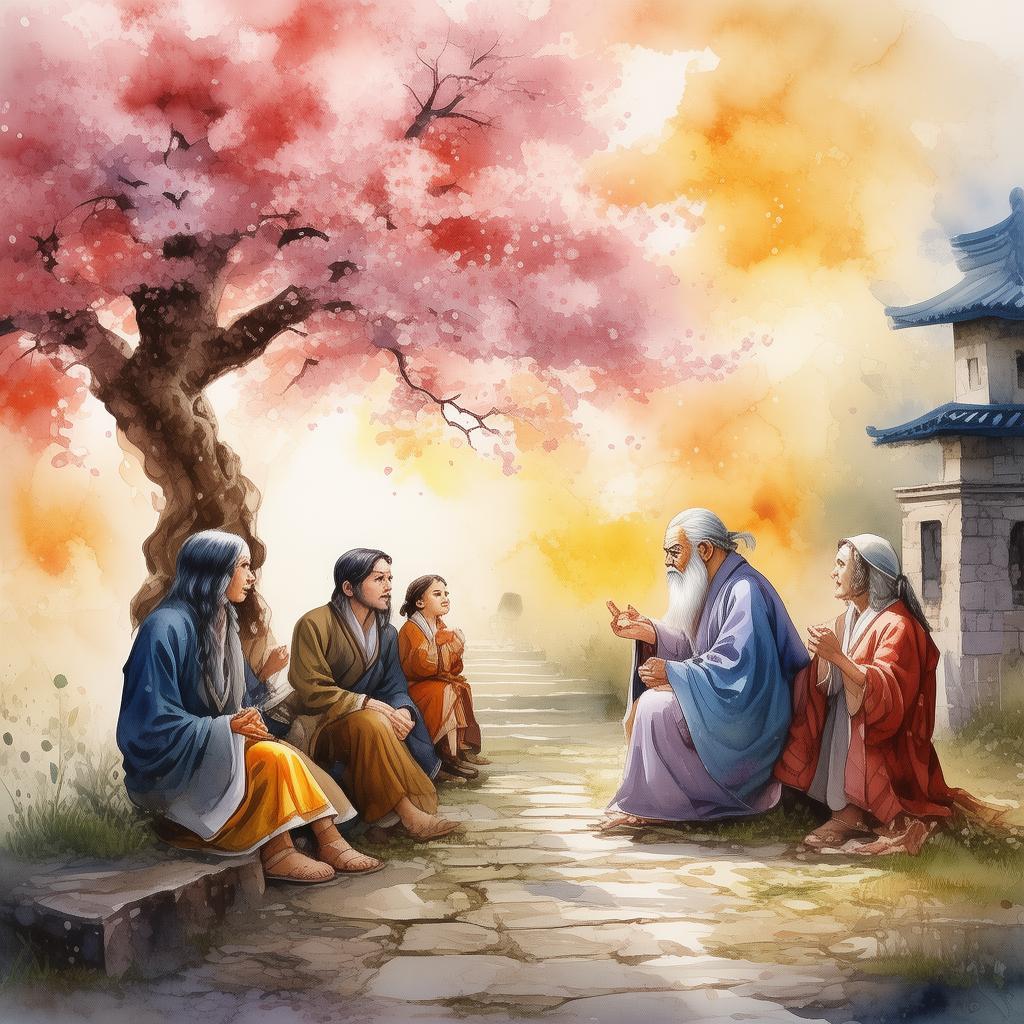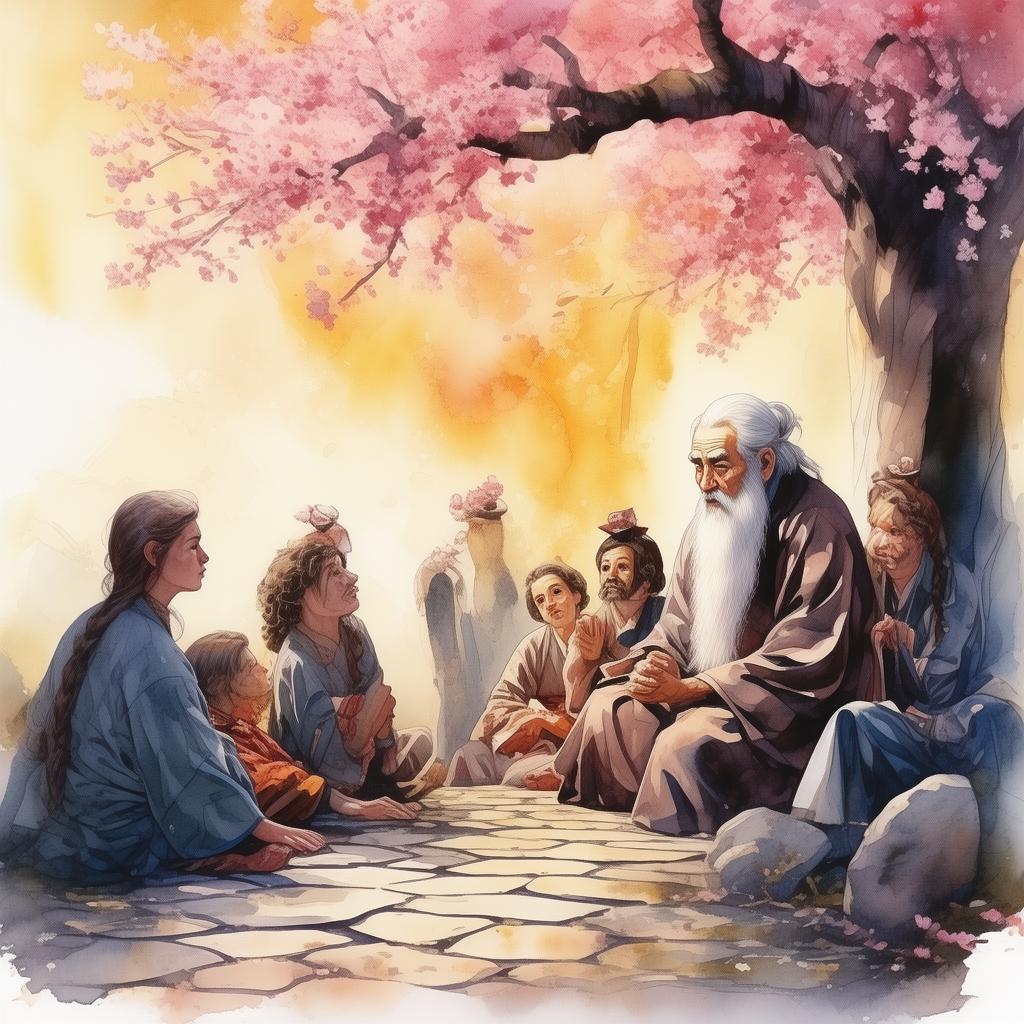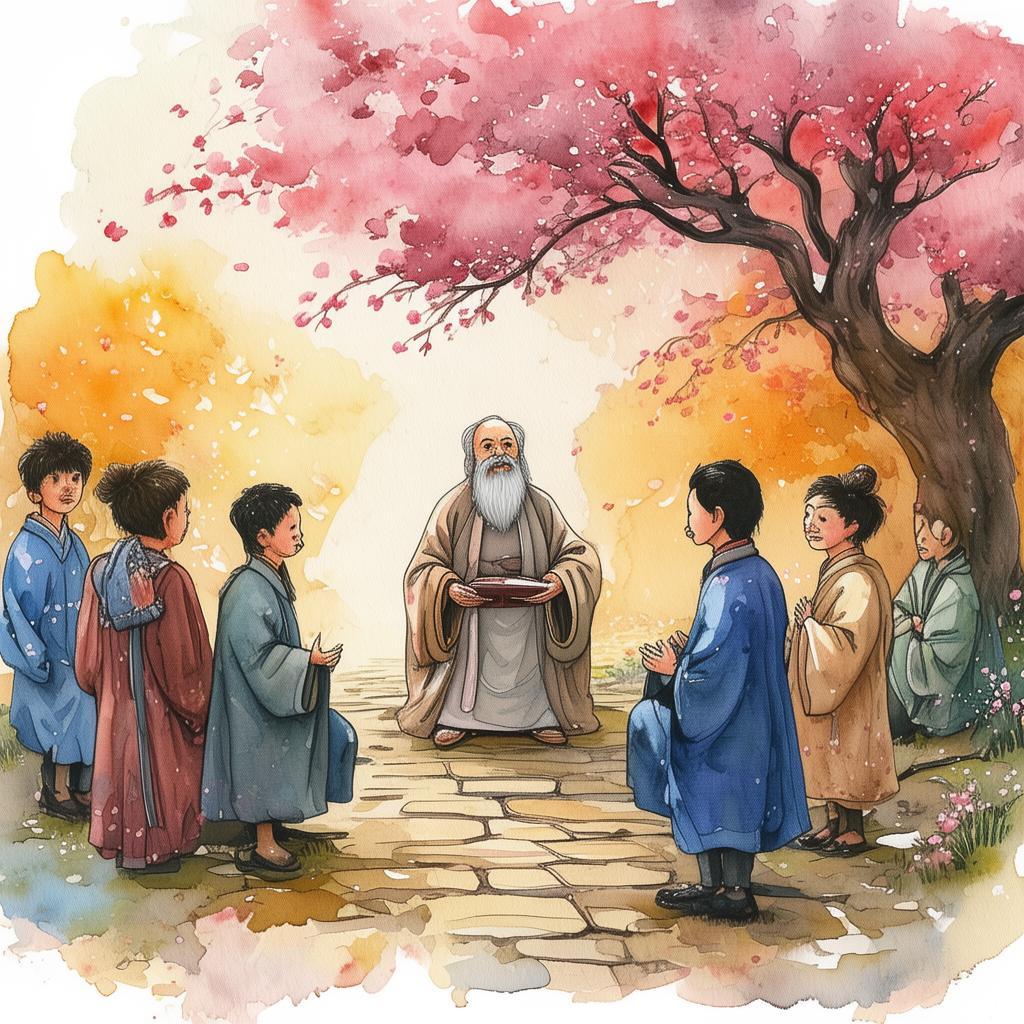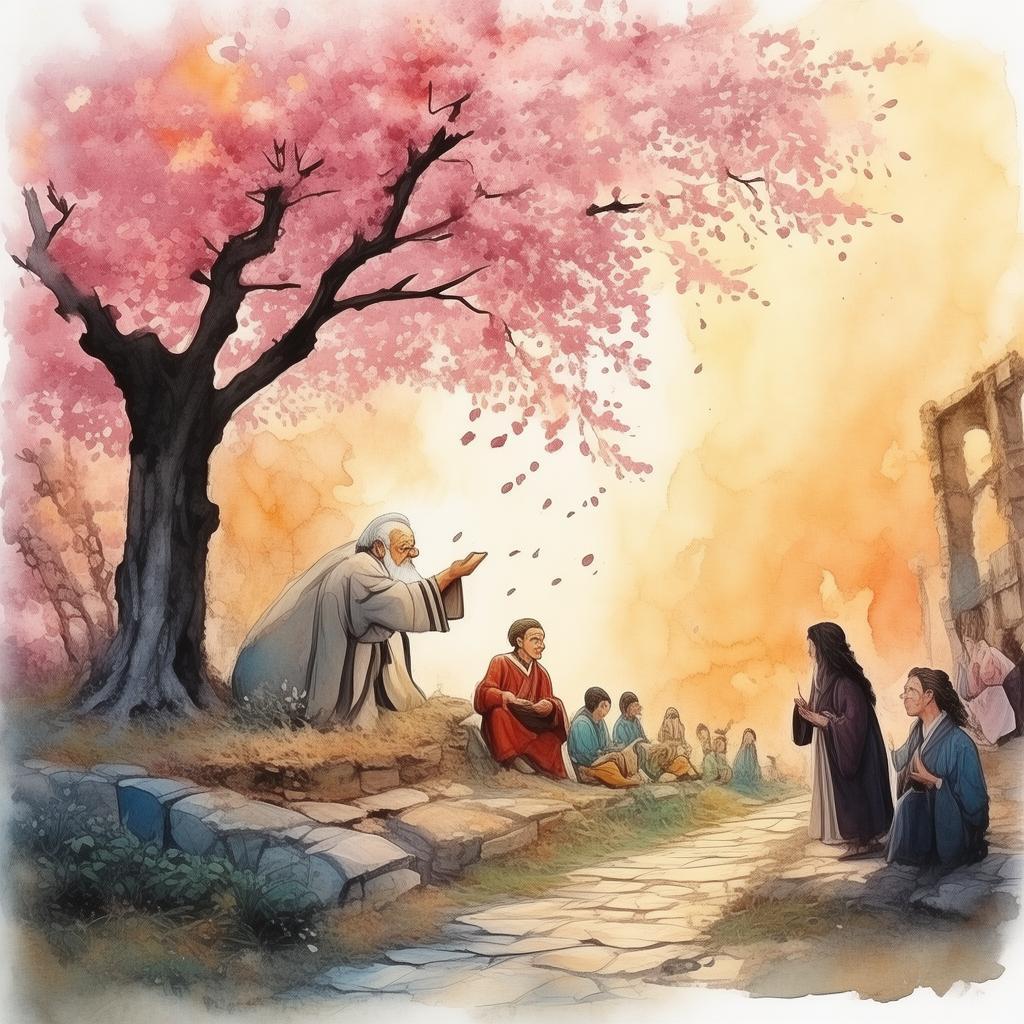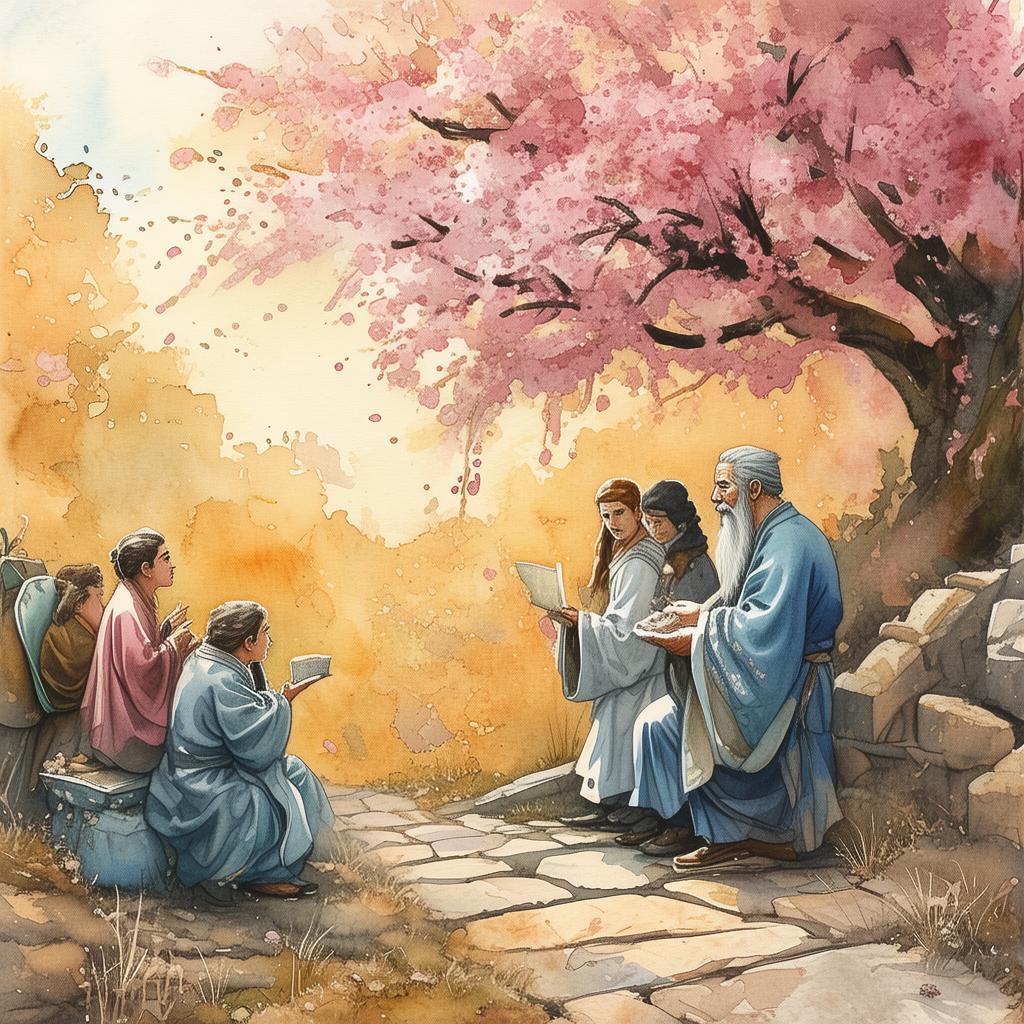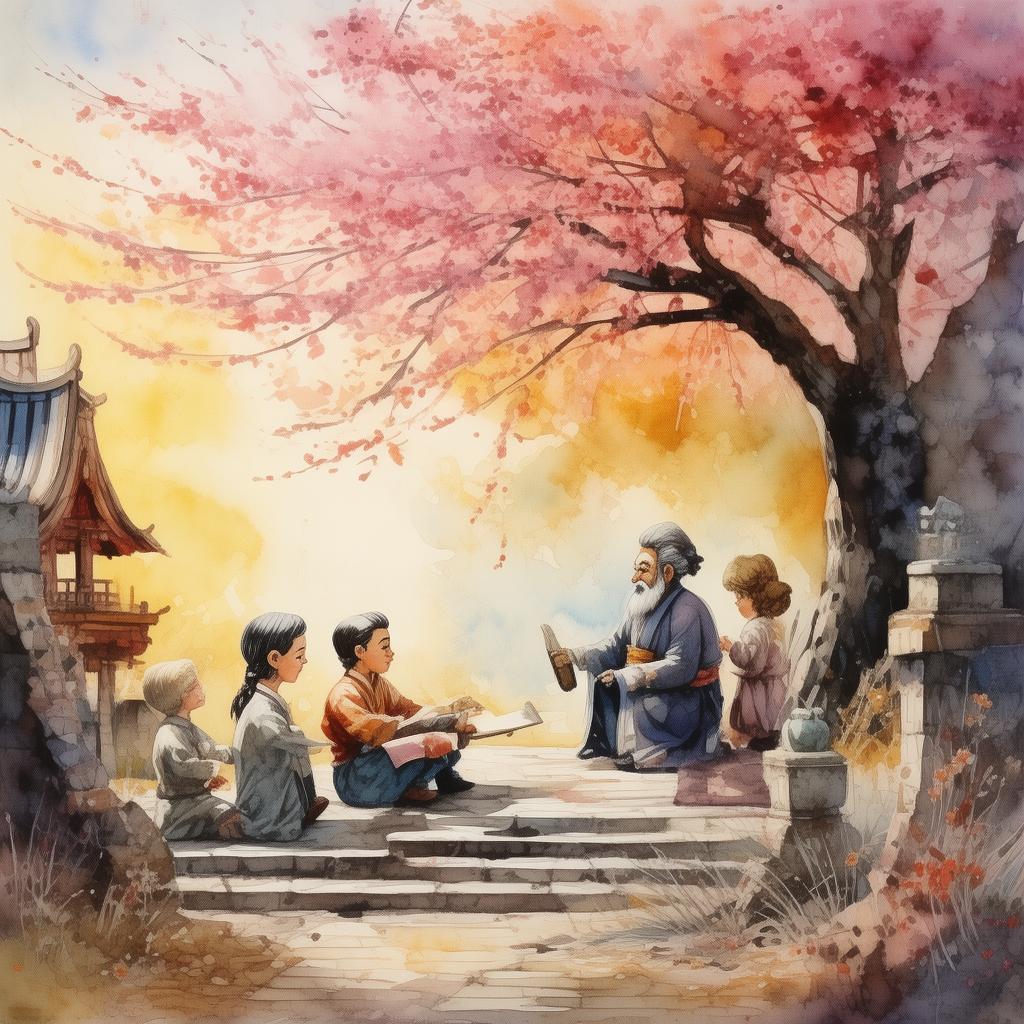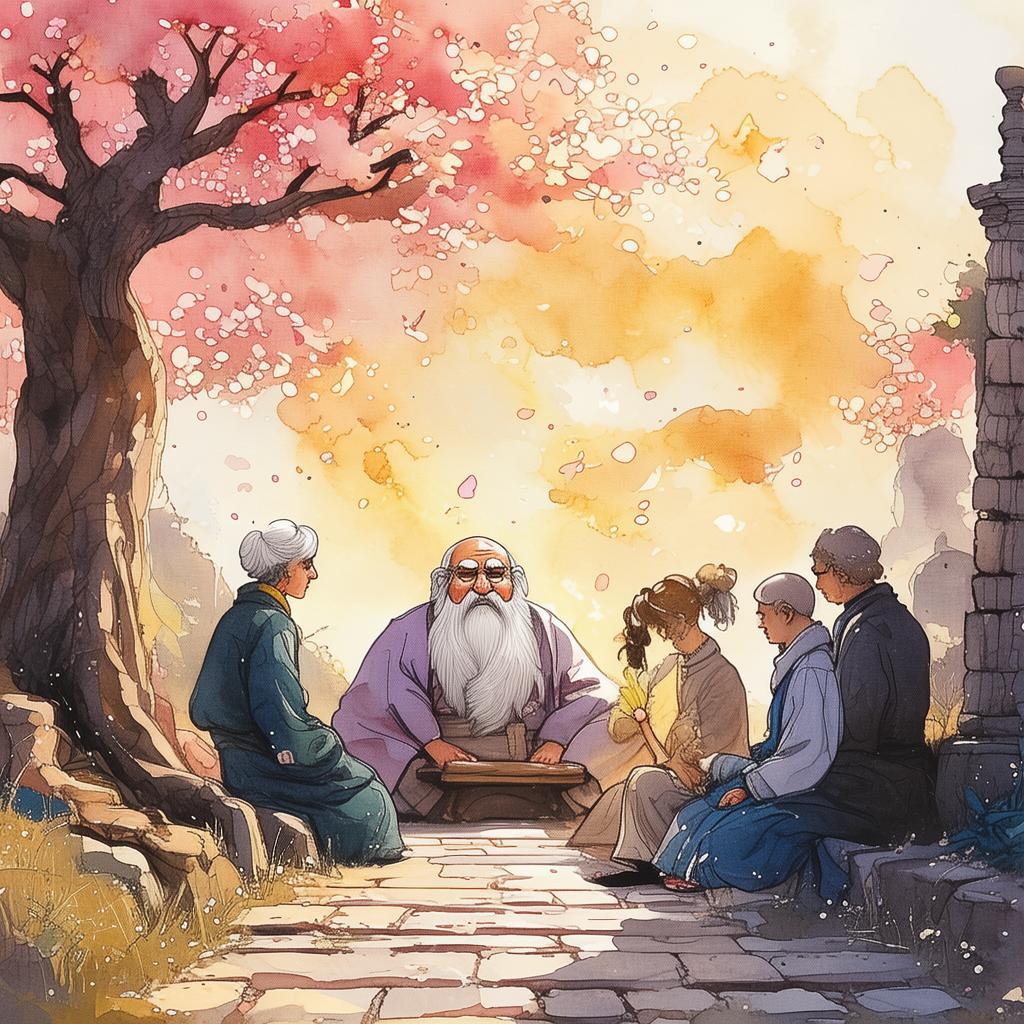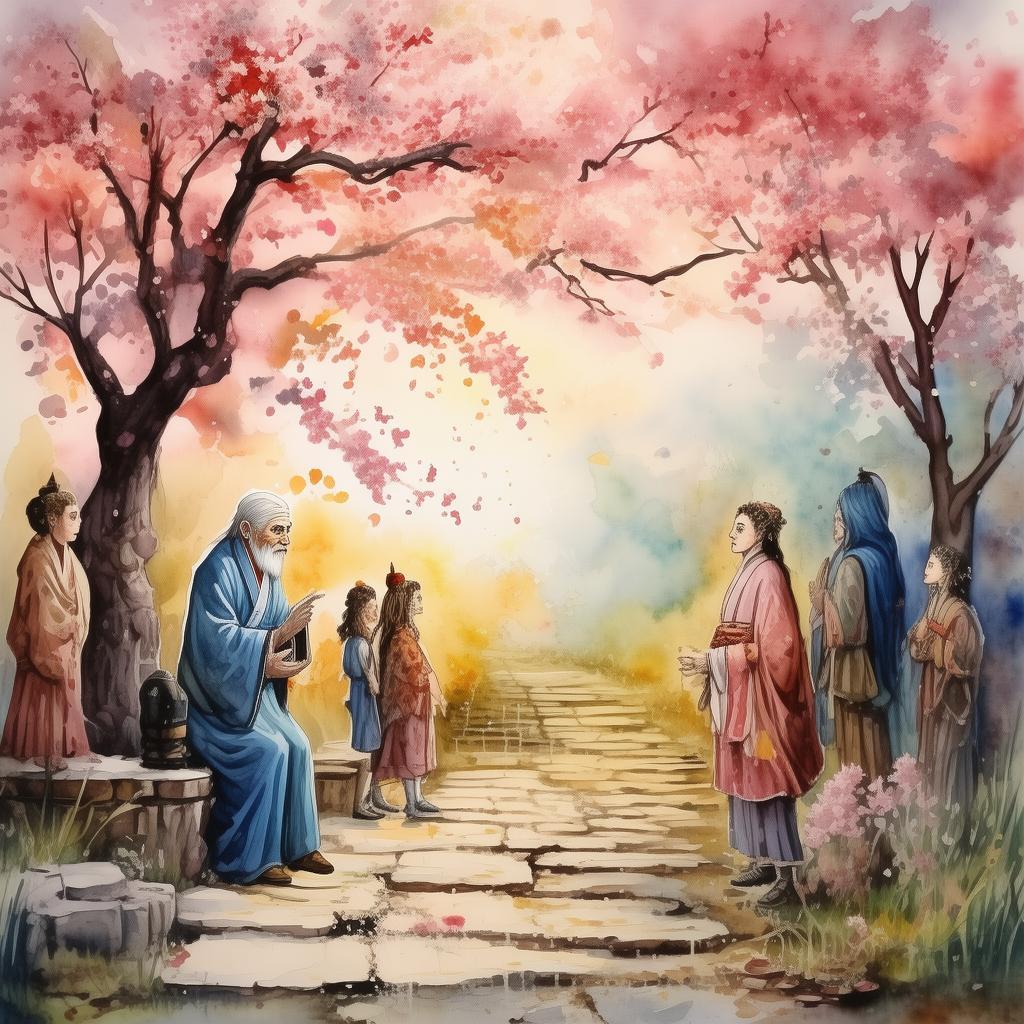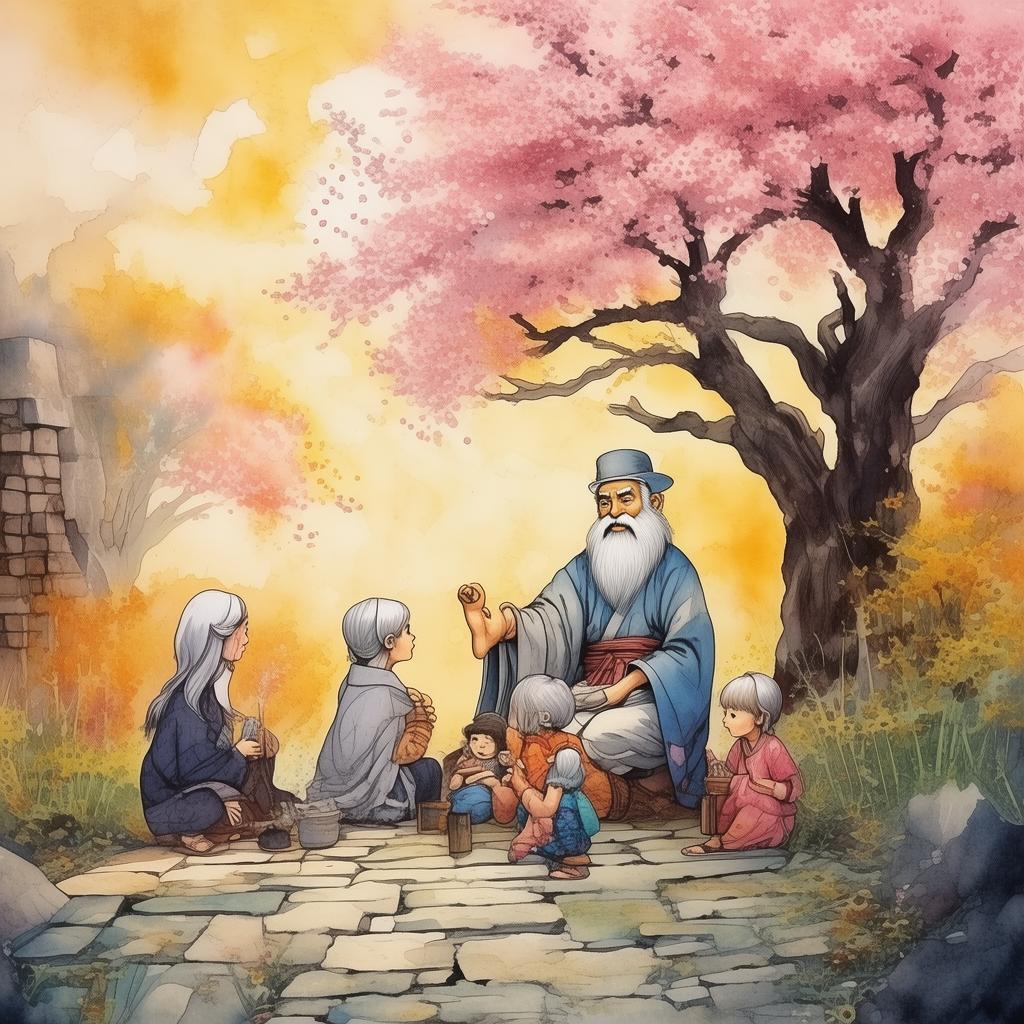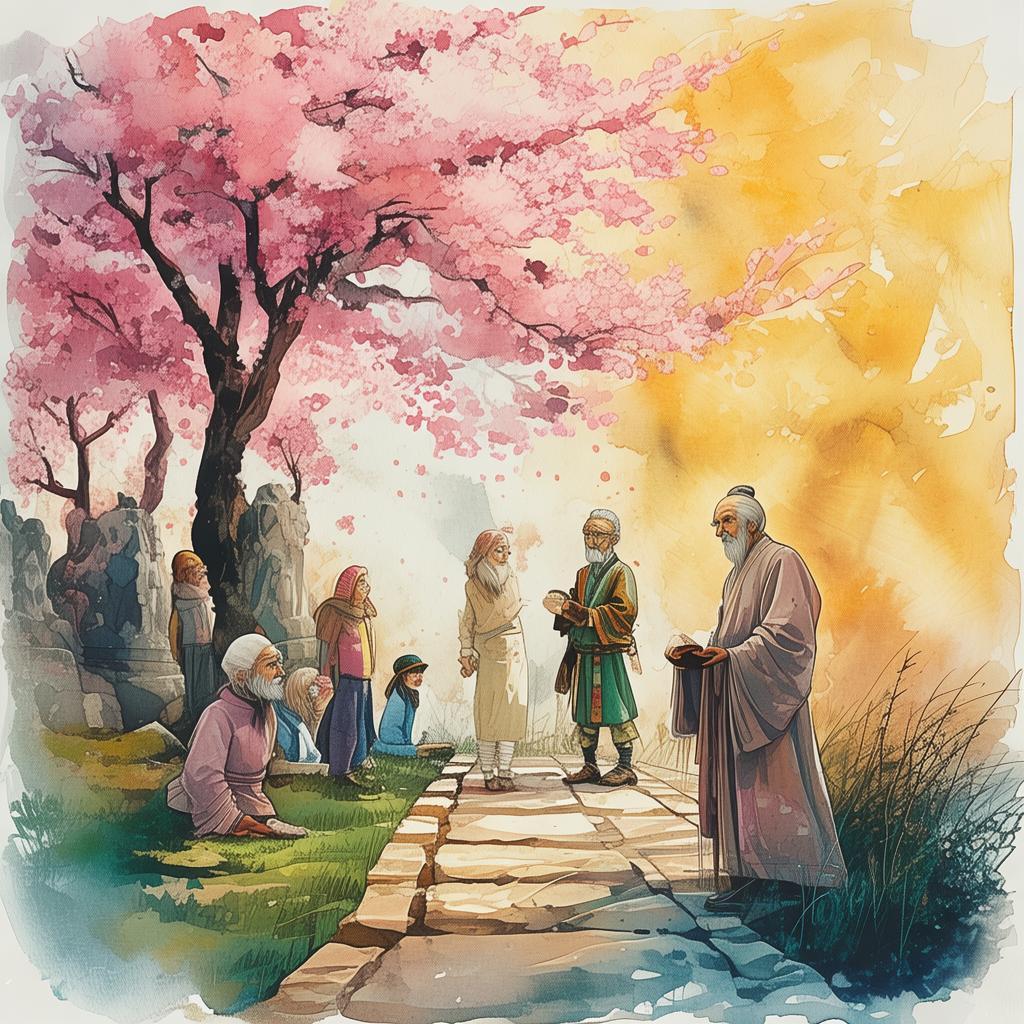The Renaissance of the Mind: A Quest for Enlightenment
In the vibrant city of Florence during the Renaissance, a young scholar named Leonardo del Vecchio was driven by an insatiable thirst for knowledge. The era was one of great intellectual fervor, a time when the ancient wisdom of Greece and Rome was being rediscovered and reinterpreted by a new generation of thinkers. Leonardo was one such thinker, a man who believed that the key to understanding the world lay not in blind faith but in the pursuit of reason and inquiry.
Leonardo spent his days in the libraries and lecture halls of Florence, surrounded by the works of great minds like Galileo, Michelangelo, and Leonardo da Vinci himself. Yet, despite his profound understanding of the physical world, he felt an emptiness within. The more he learned, the more he realized that there was a deeper truth yet to be uncovered—a truth that would unite the mind, body, and spirit.
One fateful day, as Leonardo was returning from a lecture on the philosophy of Aristotle, he stumbled upon a mysterious book in a dusty corner of a forgotten library. The book was titled "The Riddle of the Renaissance," and it contained a series of cryptic sayings that spoke of a profound truth hidden within the fabric of the universe. The book's cover was adorned with a riddle that read, "The mind is the lantern that illuminates the path to enlightenment; seek it, and you shall find the key to the universe."
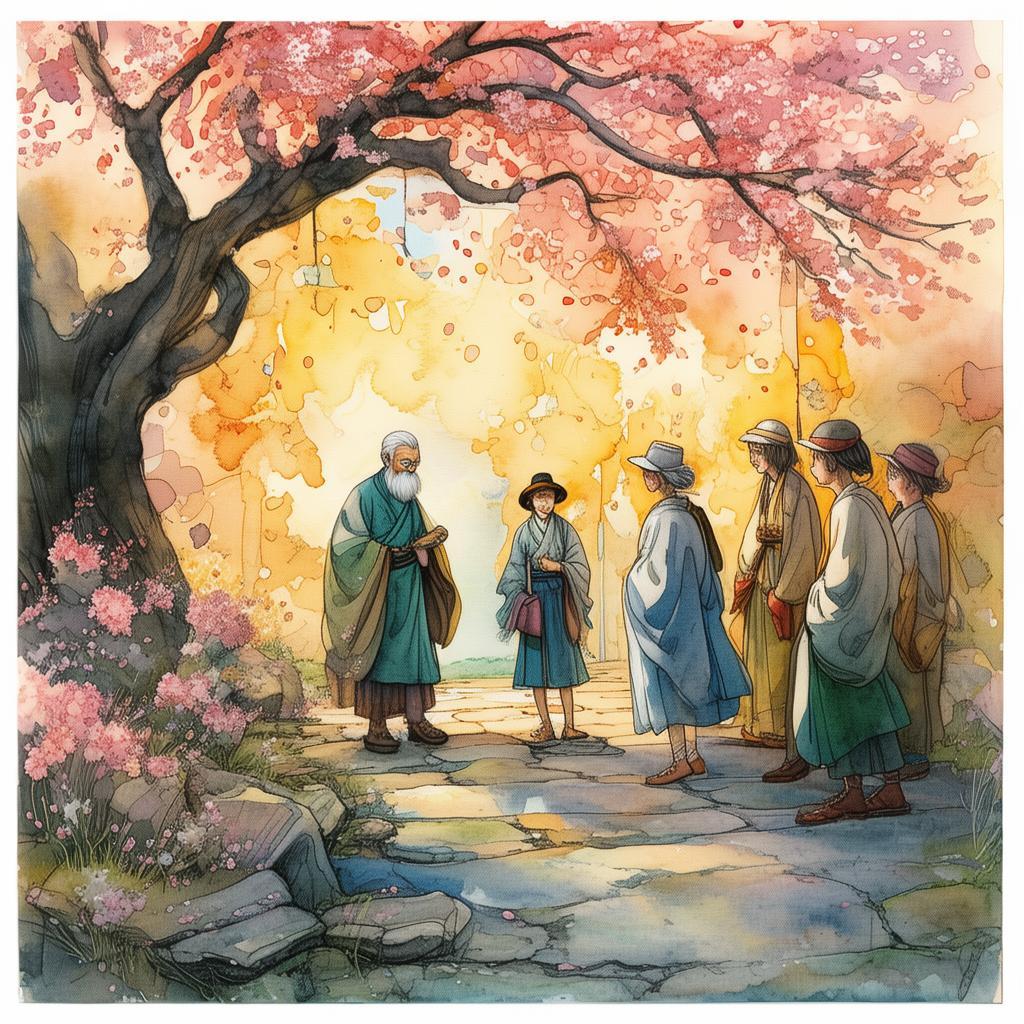
Intrigued by the riddle, Leonardo began to study the sayings, each one more perplexing than the last. One saying in particular caught his attention: "The truth is not found in the books we read, but in the questions we ask." This saying resonated deeply with Leonardo, and he knew that to truly understand the universe, he must embark on a quest for enlightenment that would take him beyond the walls of the library.
With the riddle as his guide, Leonardo set out on a journey that would take him through the streets of Florence, the countryside of Tuscany, and even into the mountains beyond. Along the way, he encountered various challenges and obstacles, each testing his resolve and his understanding of the world.
One day, as he was wandering through a dense forest, he met a wise old hermit who seemed to know everything. The hermit, seeing Leonardo's determination, offered him a riddle of his own: "The greatest treasure is not in the earth, but in the mind; seek it, and you shall find the key to immortality."
Leonardo pondered this riddle for days, and it wasn't until he reached a serene lake at the top of a mountain that he realized the answer. He saw the reflection of the sky and the trees in the water, and he understood that the hermit was speaking of the mind's ability to reflect and understand the world around it. The mind, he realized, was the key to understanding the universe and the essence of existence.
With this newfound enlightenment, Leonardo returned to Florence, where he began to teach the principles of reason and inquiry to others. His teachings spread like wildfire, and soon the Renaissance was a movement of enlightenment, a time when the world was opened up to new possibilities.
The saying that had guided him on his journey became a motto for the Renaissance: "The mind is the lantern that illuminates the path to enlightenment; seek it, and you shall find the key to the universe." Leonardo's quest for enlightenment had not only transformed his own life but had also reshaped the course of history, inspiring generations to come to seek knowledge, question the world, and strive for a deeper understanding of the human condition.
Through his journey, Leonardo del Vecchio had discovered that the quest for enlightenment was not just a personal journey but a collective one, a journey that required the collective efforts of all who sought to understand the mysteries of existence. The Renaissance had been reborn, not as a time of merely artistic and scientific achievement, but as a time of profound intellectual and spiritual awakening.
As Leonardo looked out over the city from the heights of the mountains, he realized that the true power of the Renaissance lay not in the knowledge that was gained, but in the questions that were asked and the minds that were freed. The Renaissance of the mind had begun, and it would continue to illuminate the path to enlightenment for generations to come.
✨ Original Statement ✨
All articles published on this website (including but not limited to text, images, videos, and other content) are original or authorized for reposting and are protected by relevant laws. Without the explicit written permission of this website, no individual or organization may copy, modify, repost, or use the content for commercial purposes.
If you need to quote or cooperate, please contact this site for authorization. We reserve the right to pursue legal responsibility for any unauthorized use.
Hereby declared.
